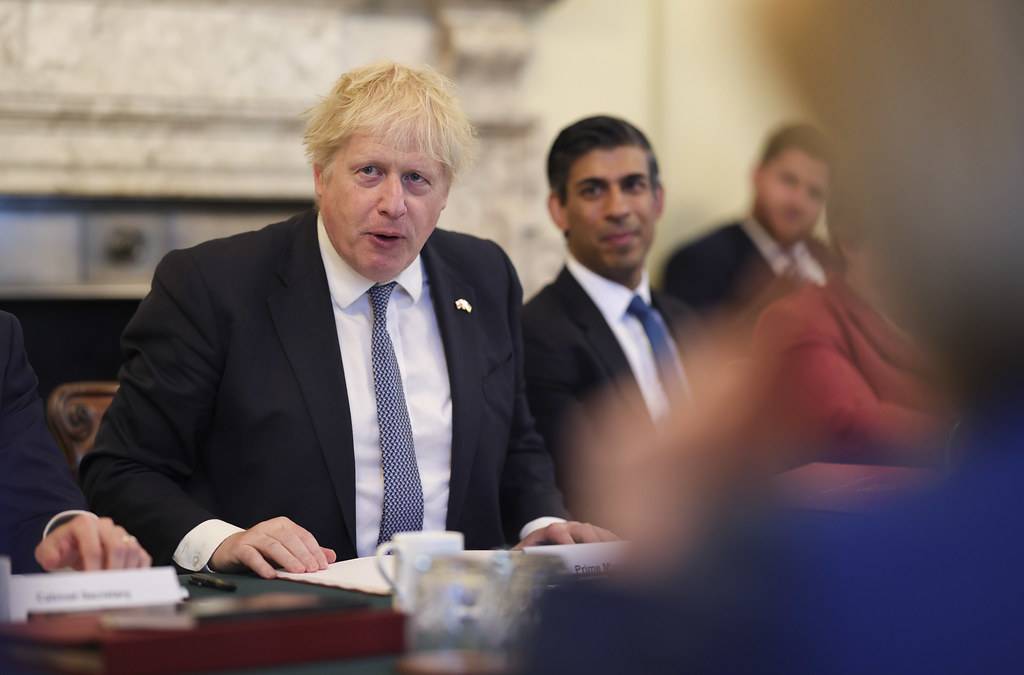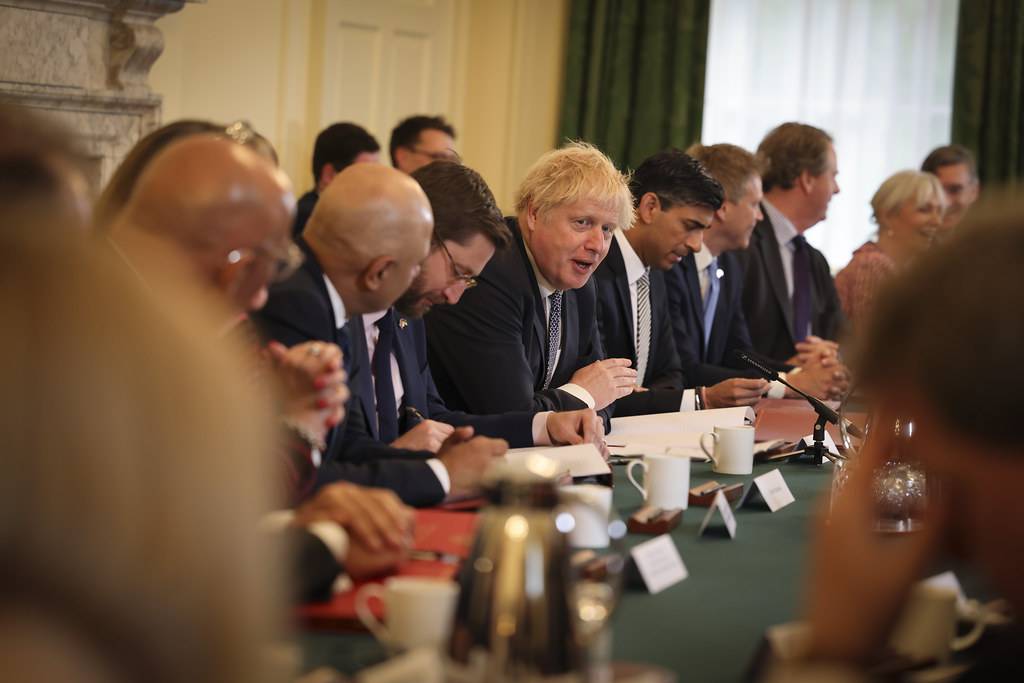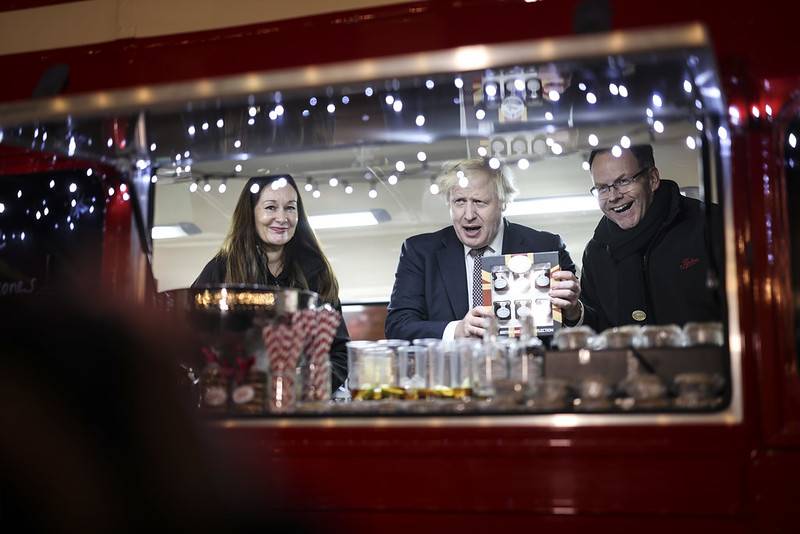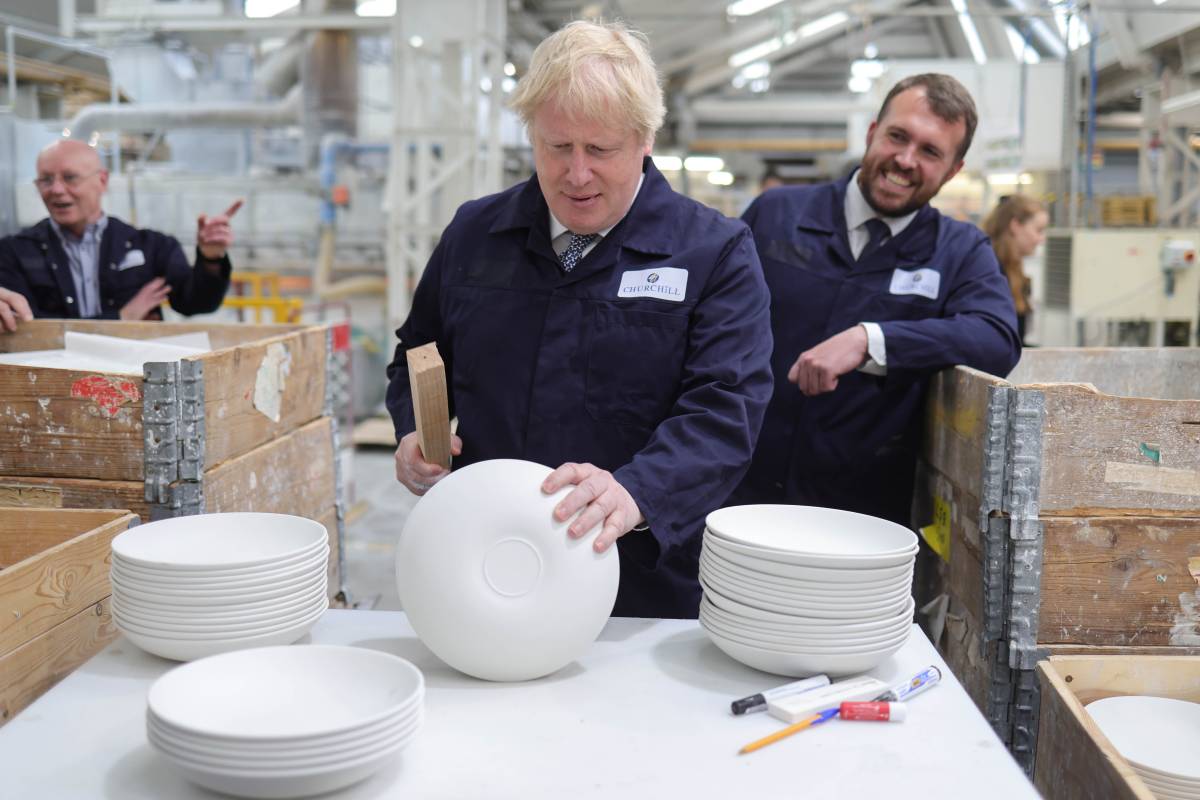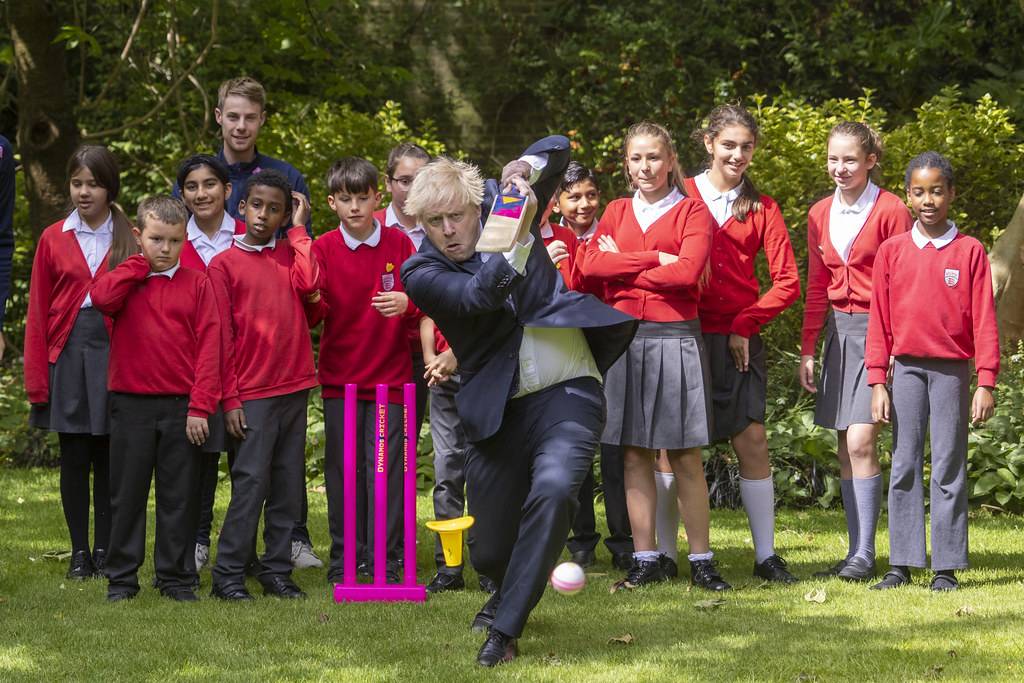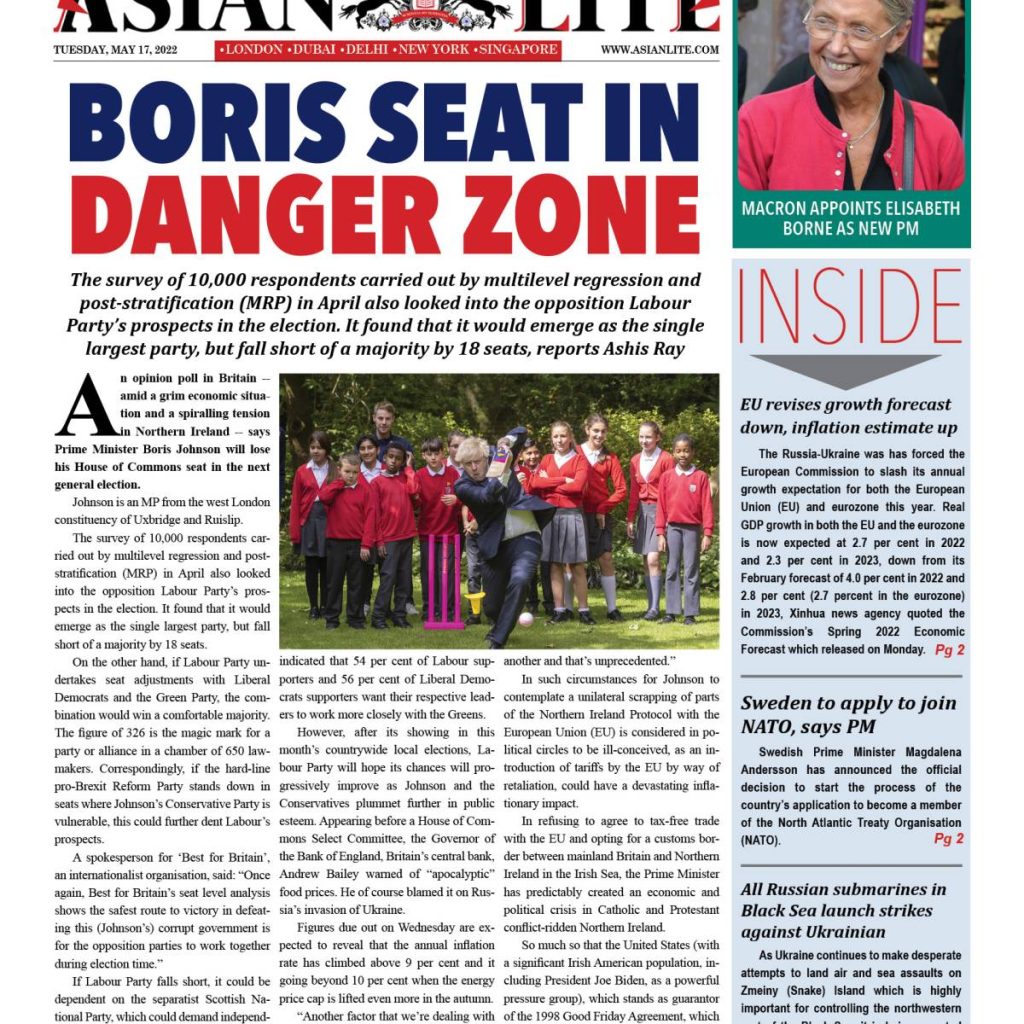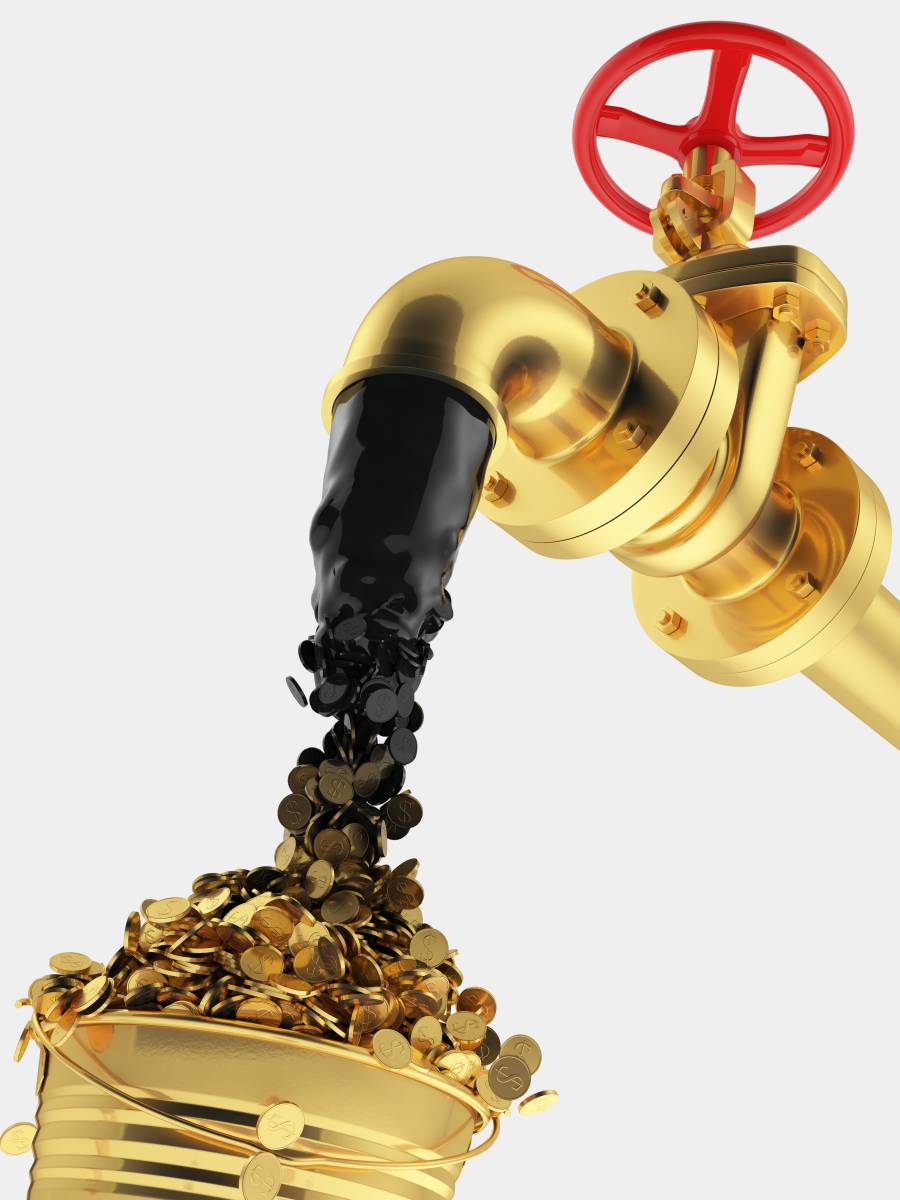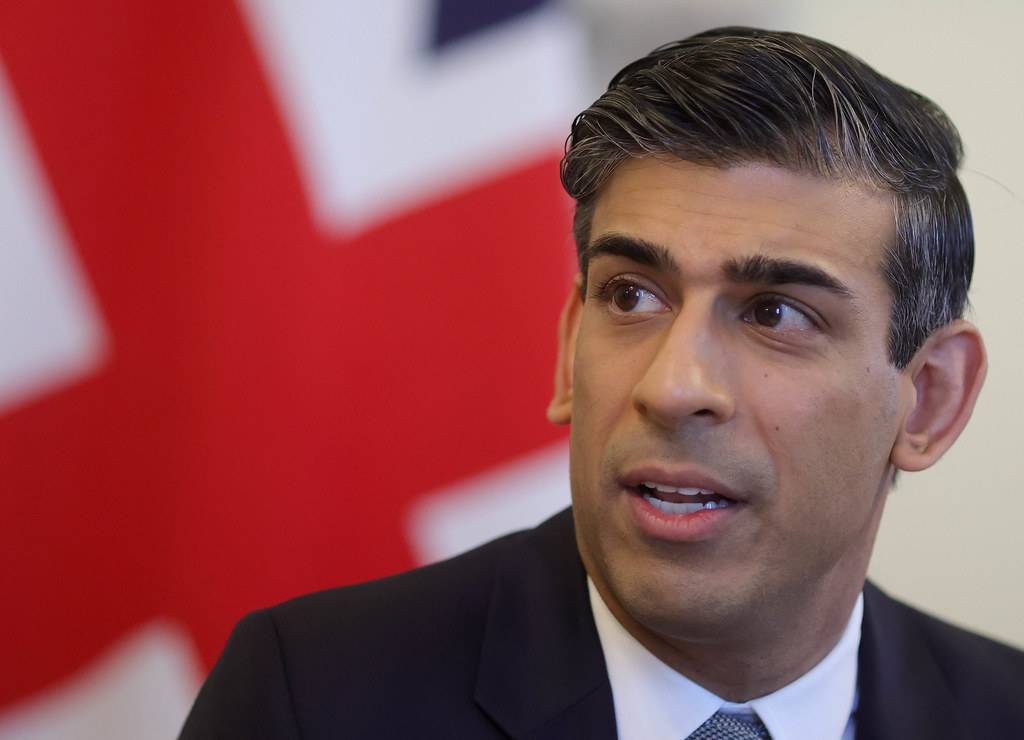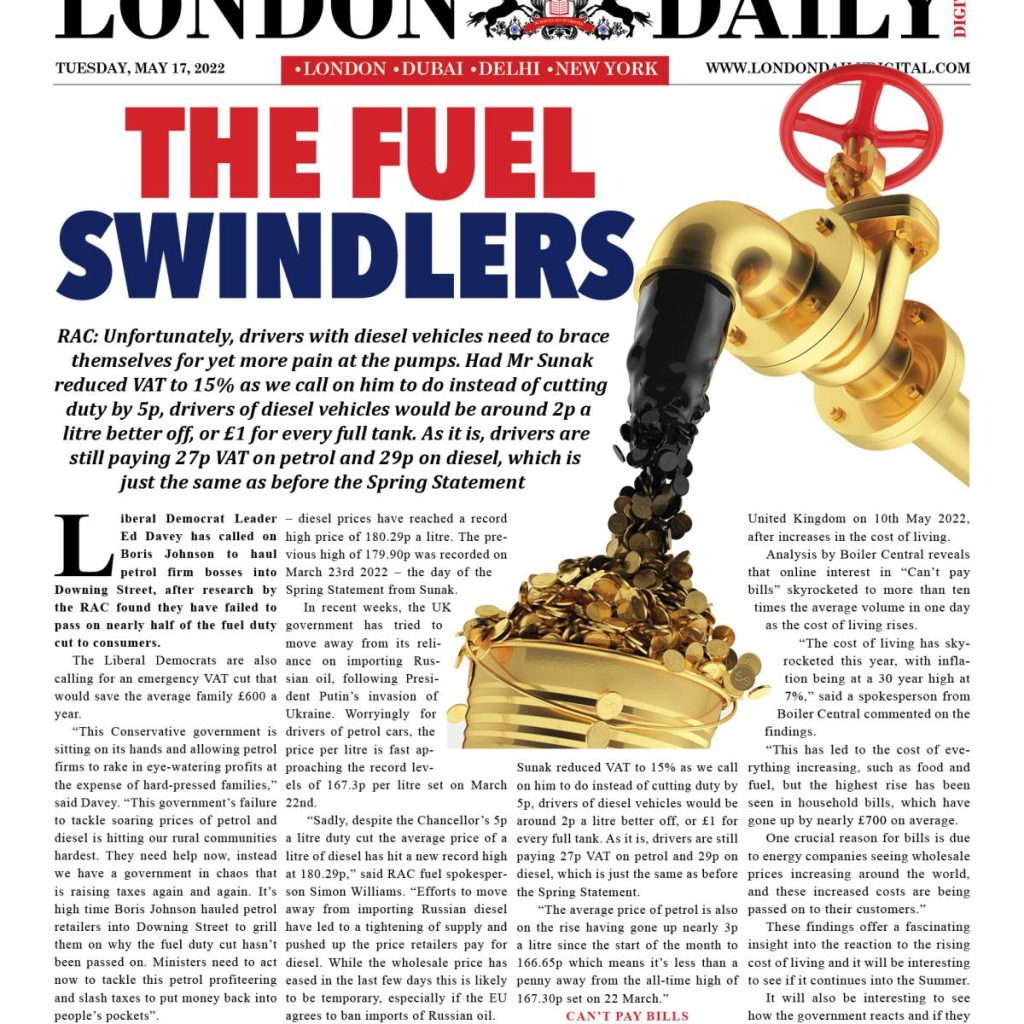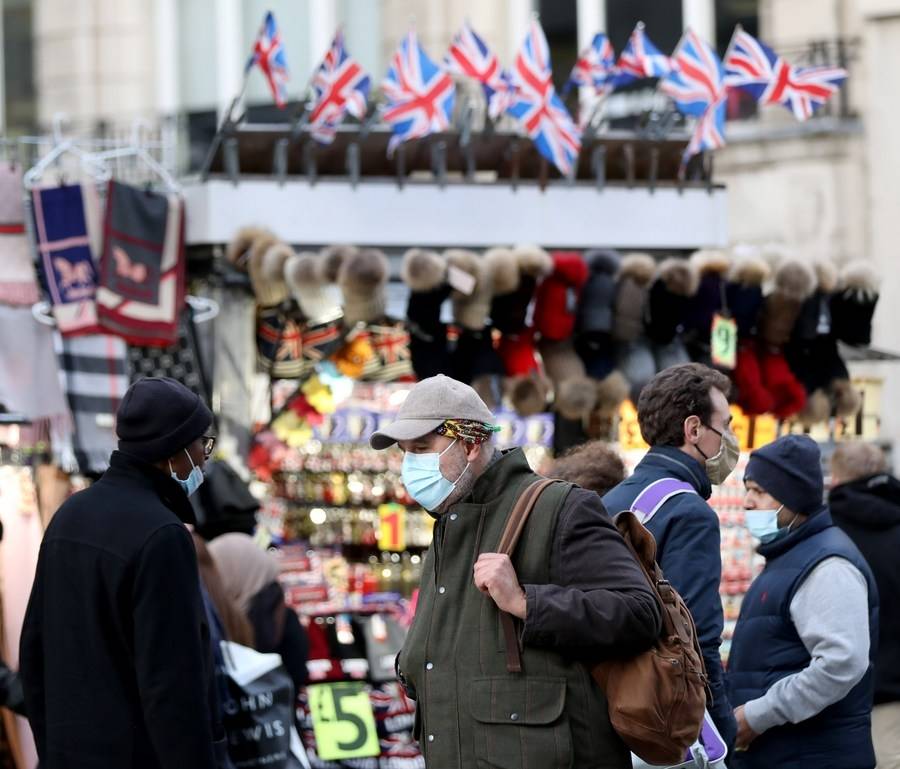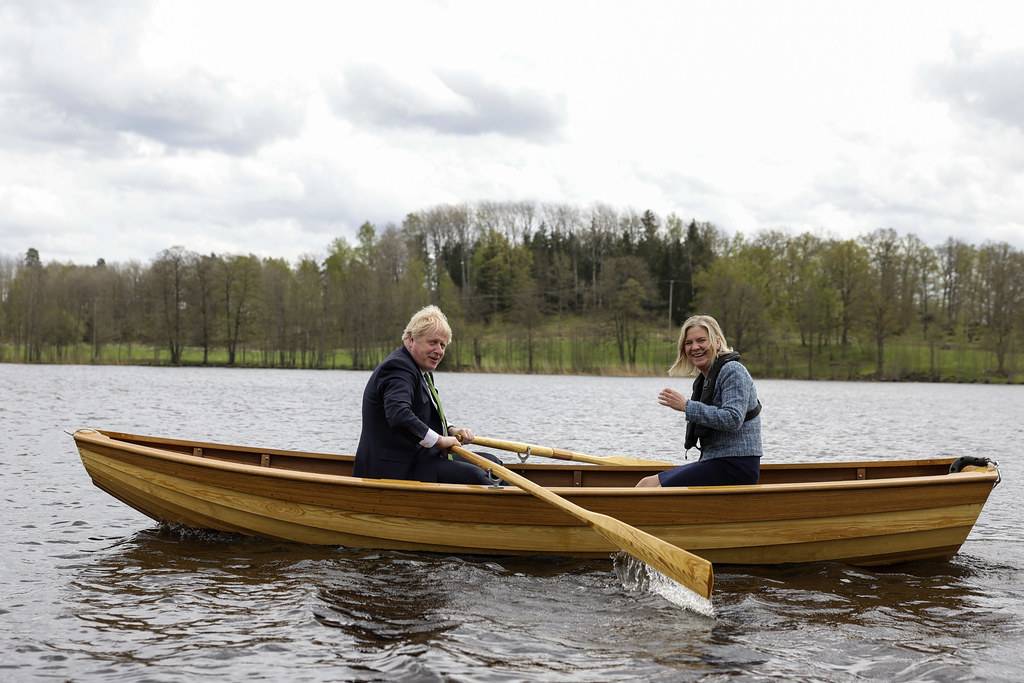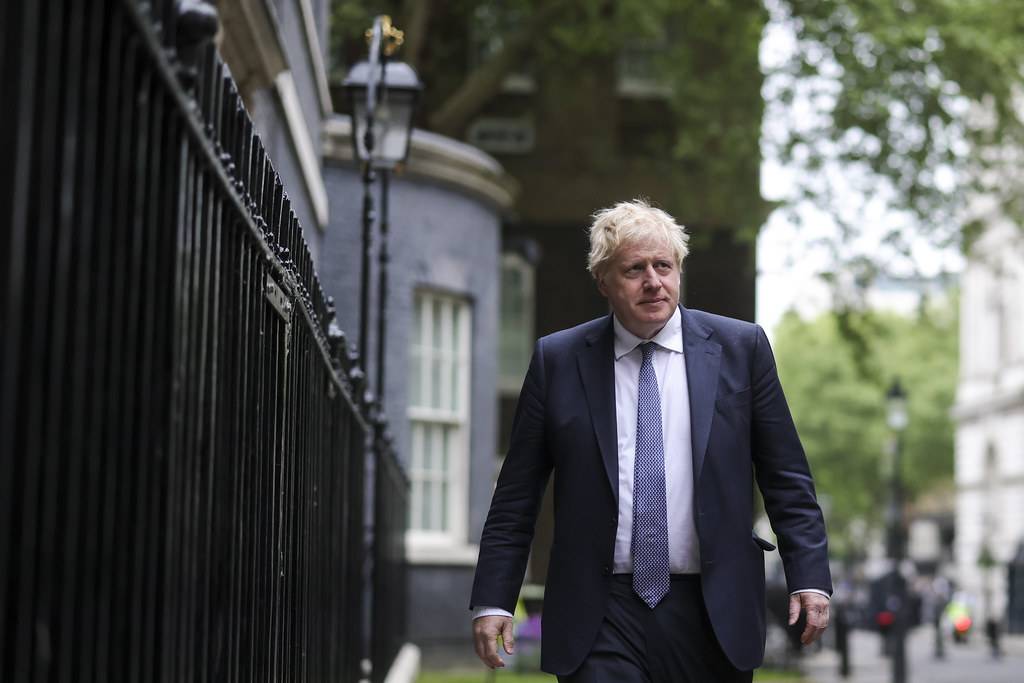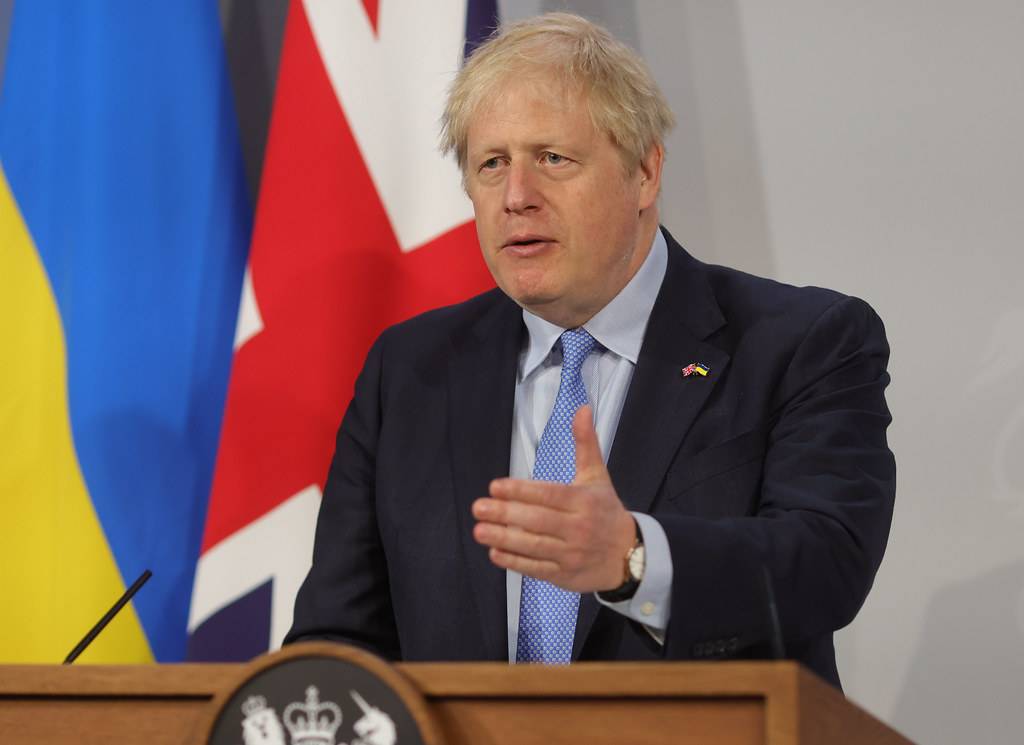Gray’s interim report, critical of leadership failures, had triggered a police investigation under Scotland Yard’s Operation Hillman…reports Asian Lite News
Prime Minister Boris Johnson is on Wednesday preparing for the release of the long-anticipated partygate report into law-breaking parties at Downing Street, compiled by senior civil servant Sue Gray.
Gray’s interim report, critical of leadership failures, had triggered a police investigation under Scotland Yard’s Operation Hillman. That investigation concluded last week with 83 fines being issued for breach of coronavirus lockdown rules within government quarters, including one each for Johnson, wife Carrie and Chancellor Rishi Sunak.
It cleared the decks for the original Sue Gray report to be published in full, which is expected to be first handed over to Downing Street before Johnson addresses Parliament over its findings.
“It’s not just the optics, it’s understandable that people will feel anger because there were instances where people couldn’t attend funerals of close friends, couldn’t visit loved ones,” UK Environment Secretary George Eustice told the BBC, with reference to the breaches.
As well as his appearance in the House of Commons, Boris Johnson is also set to face a tough meeting of the powerful Tory backbench 1922 committee. After an initial uproar over partygate, most of his party MPs have fallen behind the party line against the backdrop of a soaring cost of living crisis and Russia-Ukraine conflict.
However, the issue has been reignited as the BBC’s ‘Panorama’ programme aired footage of Downing Street insiders speaking anonymously of a boozy culture throughout the lockdown.
Three “insiders” told the documentary of chaotic, crowded gatherings at the heart of government in which people sat on others’ laps in complete disregard of the social distancing rules and rooms were left strewn with bottles of alcohol. One of the BBC’s sources said they felt such “parties” were licensed by the UK PM as he was there and did not demand it be shut down.
London Mayor Sadiq Khan is among Opposition Labour leaders calling for an explanation from the Metropolitan Police why the Prime Minister was only fined for a birthday party in June 2020 and not handed a second fine for another party after pictures emerged of him holding up a glass at a farewell drinks party on November 13, 2020. The rules in force at the time banned indoor gatherings of two or more people, except if “reasonably necessary” for work purposes.
Downing Street has said that Johnson would address Parliament “in full” after Gray published her report into the gatherings.
Johnson on Tuesday faced renewed accusations of lying, after photos emerged of him drinking at a Downing Street gathering during lockdown in 2020.
The revelations came as a senior civil servant was expected to publish her long-awaited full report into the “Partygate” scandal, despite allegations that Johnson was trying to have it dropped.
A slew of revelations earlier this year about lockdown-breaking parties caused widespread political and public anger, and put Johnson’s position in jeopardy.
But the heat was taken out of a potential mutiny from his own MPs by the war in Ukraine and his hawkish support for President Volodymyr Zelensky.
The photos published late on Monday by ITV News were taken during a leaving event for Johnson’s communications director Lee Cain on November 13, 2020, days after the government ordered a second Covid lockdown and banned households from mixing.
Johnson can be seen raising a glass and chatting with several people around a table with bottles of wine and food.
Police have investigated the leaving event as part of their probe into “Partygate” and fined one person — but not Johnson.
When he was asked in parliament last December about the gathering, the prime minister insisted there had been no party on that date and that no rules had been broken.
The police did fine Johnson over a surprise birthday party he attended at Downing Street in June 2020, but he has not been fined for any other event.
In total, they issued more than 100 fines related to multiple gatherings in an around the prime minister’s residence and place of work.
The BBC’s Panorama programme on Tuesday quoted people who attended Cain’s leaving party as saying it developed into “about 30 people, if not more, in a room. Everyone was stood shoulder to shoulder, some people (sitting) on each other’s laps.”
The event was on a Friday, when the prime minister’s press office organised regular “WTF” (“Wine-Time Friday”) drinks starting at four o’clock in the afternoon, some of the people who attended told the BBC.
A Downing Street security guard was mocked when he tried to stop a party in full flow, they said.
“People made fun of him because he was so worked up that this party was happening and it shouldn’t be happening.”
The deputy leader of the main opposition Labour party, Angela Rayner, said it was “astonishing” that Johnson was not fined for the November gathering.
She told ITV News that it looked “pretty clear” the gathering had been a party, not a work event. She said it was “pretty shocking” Johnson had not been fined for it.
“He’s tried to lie to the British public and he’s tried to lie to parliament,” Rayner said.
Transport Secretary Grant Shapps sought to defend Johnson on Tuesday, saying the new pictures showed the prime minister was “clearly not” partying.
“It looks to me he was asked to go and thank a member of staff who was leaving, raises a glass to them and I imagine comes in and out pretty quick, which is presumably why the police have not issued a fixed-penalty notice (fine) to the prime minister,” Shapps told BBC radio.
In a separate development, the Times newspaper reported on Tuesday that Johnson had put pressure on civil servant Sue Gray to drop her much-anticipated report on “Partygate”.
Sky News quoted sources as saying Johnson had questioned what more would be left to say in Gray’s report after the police concluded their work.
ALSO READ-MELTDOWN AT NO10

